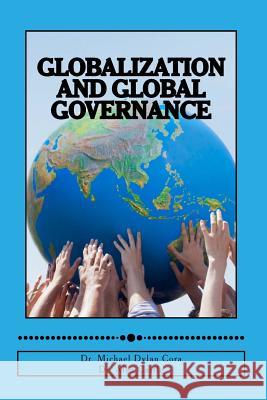Globalization and Global Governance » książka
Globalization and Global Governance
ISBN-13: 9781523632701 / Angielski / Miękka / 2016 / 398 str.
A generally accepted definition of economic globalization is the increasing integration of national economies into expanding international markets. This expansion of markets will mean that the free movement of goods, services, labour and capital, will result in a single global market in inputs and outputs; so that, economically speaking, there are no foreigners. Globalization is a process of interaction and integration among the people, companies, and governments of different nations, a process driven by international trade and investment and aided by information technology. This process has effects on the environment, on culture, on political systems, on economic development and prosperity, and on human physical well-beingin societies around the world. Global governance, which is characterized by unclear and informal rules, multiple and overlapping authorities and jurisdictions, and the rise of powerful non-state actors, poses serious legitimacy challenges: the amplification of power inequalities among actors, the obfuscation of decision-making processes and outcomes, and the disruption of democratic underpins of national societies. Increased international interdependence and interconnect edness has led to the building of a global governance structure, with the establishment of various institutions, diverse regulatory processes, and mechanisms through which a growing number of actors can participate, influence, and make claims.
Zawartość książki może nie spełniać oczekiwań – reklamacje nie obejmują treści, która mogła nie być redakcyjnie ani merytorycznie opracowana.











